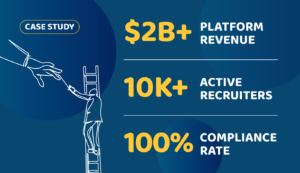Boost Your Take-Home Pay and Protect Your Assets with the Optimal Legal Structure
Disclaimer: This article provides general information for educational purposes only and should not be construed as legal, financial, or tax advice. Business regulations and tax laws vary by country and region. Please consult with qualified professionals for advice specific to your situation before making any business decisions.
As an independent contractor, the business structure you choose directly impacts your take-home pay, tax obligations, legal protections, and growth opportunities. Making the right choice can boost your earnings while safeguarding your personal assets. This practical guide explores your options and helps you identify the most beneficial structure for your contracting career.
Business Structures: Finding Your Perfect Fit
Each business structure offers different advantages for independent professionals. Understanding these differences helps you select the option that best supports your financial goals and working style.
Sole Trader/Sole Proprietorship: Simplicity and Control
The most straightforward business structure (known as “sole trader” in many countries or “sole proprietorship” in others) offers several benefits:
Most contractors begin with this structure due to its simplicity. You can register quickly, keep all business profits (after tax), and make all business decisions independently. Setup generally requires minimal paperwork and modest government fees, though requirements vary by country.
While this structure offers simplicity, it provides no separation between personal and business liabilities, potentially putting your personal assets at risk if your business faces financial difficulties or legal claims.
Limited Company/Corporation: Maximum Protection and Tax Flexibility
Limited companies or corporations provide the strongest separation between your personal and business affairs:
This structure creates a distinct legal entity separate from yourself, offering significant protection for your personal assets. Many contractors choose this option not only for liability protection but also for tax planning opportunities, as you can often optimise your income through a combination of salary and dividends.
The enhanced credibility that comes with incorporation can also help you secure more lucrative contracts and establish stronger business relationships. However, these benefits come with increased administrative responsibilities, including more complex accounting requirements and regular filings with government authorities.
Limited Liability Companies (LLCs) and Partnerships
These structures represent middle-ground options that balance protection and simplicity:
Partnerships allow you to combine resources and expertise with others, potentially expanding your business capabilities and client reach. Limited liability partnerships (LLPs) offer the additional benefit of protecting partners’ personal assets from business liabilities in many jurisdictions.
Limited liability companies (LLCs), available in many countries under different names, blend the liability protection of corporations with the tax flexibility and reduced formality of sole proprietorships. This makes them an attractive option for contractors seeking a balance between protection and administrative simplicity.
Business Structure Benefits Comparison
To help you evaluate which structure might be best for your situation, consider the following comparison:
| Factor | Sole Trader/Proprietorship | Limited Company/Corporation | LLC/LLP |
| Setup complexity | Low | High | Medium |
| Setup costs | Low | Higher | Medium |
| Personal liability protection | None | Strong | Strong |
| Administrative burden | Minimal | Significant | Moderate |
| Tax planning flexibility | Limited | Extensive | Moderate |
| Professional credibility | Basic | High | Good |
| Ability to raise capital | Limited | Strong | Moderate |
| Best for: | Early-stage contractors with lower incomes | Higher-earning contractors seeking maximum protection and tax efficiency | Growing contractors seeking balance between protection and simplicity |
Maximising Your Take-Home Pay Through Smart Structure Choice
Your business structure directly affects how much money stays in your pocket through multiple channels:
Tax Efficiency Opportunities
Different structures offer varied tax advantages that can significantly impact your after-tax income.
Corporate structures often allow you to time income recognition, split income between salary and distributions, and access unique deductions. In many jurisdictions, you can retain earnings within the company at potentially lower tax rates or time distributions to minimise overall taxation.
Simpler structures like sole proprietorships offer less tax planning flexibility but may have lower compliance costs and simpler filing requirements. The optimal choice depends on your income level, growth trajectory, and the specific tax laws in your location.
Setting Higher Rates and Better Terms
Your business structure influences your ability to command premium rates.
Formal business structures enhance professional credibility, often leading to higher-paying opportunities. Clients typically perceive incorporated contractors as more established and reliable, potentially leading to improved negotiating positions and better contract terms.
Additionally, more formal structures can make it easier to establish clear scope boundaries and payment terms, reducing common issues like scope creep and payment delays that eat into your effective hourly rate.
Maximising Legitimate Business Deductions
Formal business structures typically expand your deduction opportunities.
All business structures allow you to deduct legitimate business expenses, but the formality of your structure can impact what’s deductible and how easily you can defend those deductions. Common deductions include home office expenses, technology costs, professional development, marketing expenses, travel costs, and retirement contributions.
A dedicated business account and clear financial separation between business and personal expenses make documenting and claiming these deductions significantly easier regardless of your chosen structure.
Protecting Your Personal Assets
One of the most significant benefits of formal business structures is safeguarding what you’ve worked hard to build:
Liability Protection Benefits
Different structures offer varying levels of personal asset protection.
Limited companies/corporations provide the strongest separation between personal and business assets. This means your personal savings, home, and other assets remain protected if your business faces lawsuits, debts, or financial difficulties.
Sole traders have no such protection, with business liabilities potentially extending to personal assets. This represents a significant risk, especially as your business grows or operates in higher-liability fields.
Asset Protection Strategies
As your contracting income grows, protecting your assets becomes increasingly important.
Beyond your business structure, complementary protection strategies include professional liability insurance, clear contracts with well-defined scope limitations, and maintaining separate business and personal finances. These approaches work best when paired with formal business structures that provide inherent liability protection.
Additionally, understanding how businesses evaluate contractor arrangements can give you valuable perspective on how to structure your services.
Practical Financial Management
Regardless of structure, effective financial management is essential for maximising earnings:
Business Banking Considerations
While contractors using simpler business structures can legally use personal accounts for business transactions in many countries, dedicated business accounts offer significant advantages.
Separate business accounts create clearer financial boundaries, simplify tax preparation, project professionalism to clients, and provide better tracking of business performance. Many financial institutions offer business accounts specifically designed for independent contractors and small businesses.
Record-Keeping Best Practices
Effective documentation supports both tax optimisation and business growth.
Maintain detailed records of all business income and expenses, keep contracts and project documentation organised, and regularly review your financial performance. This practice not only supports tax compliance but also helps you identify your most profitable activities and clients.
Building a Sustainable Contracting Business
The right business structure supports long-term career development:
Growth and Scalability Advantages
More formal structures facilitate expansion and diversification.
As your business grows, corporate structures make it easier to bring on employees or subcontractors, expand into new service areas, or even sell your business. These structures also typically offer more financing options should you need capital for expansion.
Building Market Credibility
Your business structure significantly influences your professional reputation.
Corporate structures signal serious business commitment to potential clients and can help you compete for larger opportunities. Many enterprise clients require their contractors to have formal business structures, making incorporation a gateway to higher-value contracts.
Taking the Next Step
The right business structure can significantly increase your take-home pay while providing essential protections for your contracting career. While this guide provides foundational knowledge, your optimal choice depends on:
- Your income level and growth projections
- Risk tolerance and liability concerns
- Administrative preferences
- Tax situation and planning goals
- Long-term business vision
Consider consulting with financial advisors or legal professionals who specialise in independent contractor matters to determine the best structure for your specific situation. The right choice can maximise your earnings while providing essential protections as you build your contracting business.



